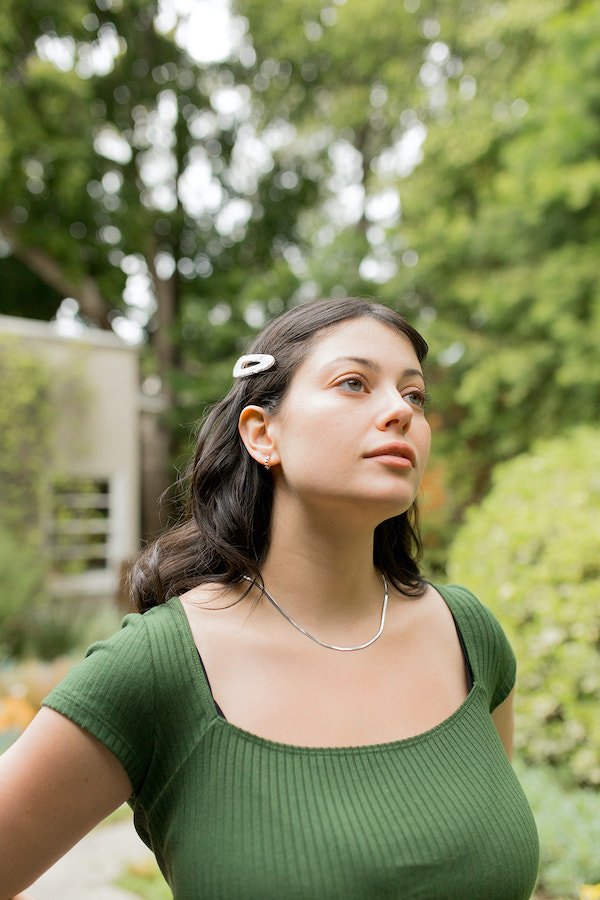
How Anxious Is ‘Anxious Enough’ For Medication?
For years I’ve been telling myself my anxiety isn’t that bad.
Sure, I’ve been known to get worked up during arguments with my partner and wind up rocking back and forth, struggling to breathe—but that’s because I love him and fear losing him, normal stuff.
Okay, I’ve also experienced intermittent insomnia, waking up at 2 a.m. in a panic about everything I’ve done wrong that day or will fail at tomorrow—but according to the internet, we all do that.
And yes, I’ve been prone to obsess over my body: what it looks like, how it fits (or doesn’t) into the spectrum of “normality”—but that’s understandable for someone who had weight loss surgery at 17.
Fine, I’ve also (often) stressed about the things I don’t have time or energy to do—but that has to be late-stage capitalism’s fault, right? Or is it mine? Because, as that awful mug says, I have the same number of hours in a day as Beyoncé.
“In my mind, my anxiety wasn’t that bad: I wasn’t having regular panic attacks or calling in sick to work.”
I’ve always been an anxious person; I’m a worrywart by nature. But last summer, between the pandemic and the election and increasing police brutality, I was vibrating. Finally, after winding myself tighter and tighter, I asked a telehealth doctor for “something light,” and she recommended SSRIs (Selective Serotonin Reuptake Inhibitors—a common type of antidepressant).
I reacted internally as if the doctor had tried to put me on opiates for an ankle sprain. I wanted a prescription for Xanax or some other immediate solution, not longer-term SSRIs, which I thought were prescribed to severely depressed people. I told the doctor I’d think about it.
I had considered medication before—in 2014, when I’d had my heart broken, I was actually desperate for it. But I hadn’t been able to ask for it. I was too afraid of being disbelieved, second-guessed. And in my mind, my anxiety wasn’t that bad: I wasn’t having regular panic attacks or calling in sick to work.
Plus, what if my anxiety was the only reason I’d ever experienced any success in life, the only thing motivating me to work hard? Would I have consistently earned good grades in school or even survived my master’s degree if I’d been more chill? Would I ever have published anything if I hadn’t been driven to prove myself, to quiet the voice in my head telling me I’m worthless unless I have something to show for my passion? Even some of my strongest relationships might never have existed without my anxiety about being alone forcing me to take uncomfortable risks.
“What if my anxiety was the only reason I’d ever experienced any success in life, the only thing motivating me to work hard?”
“Well, sure, I’ve always been anxious, but who hasn’t? And it’s not as bad as what other people go through—it’s not chronic,” I told my close friend and former college roommate, Emily—now Dr. Emily Bilek—a psychologist and Clinical Assistant Professor at the University of Michigan specializing in anxiety disorders. When I told her about the “SSRI pusher,” she asked why I thought I didn’t need long-term medication.
“So you’ve always been anxious…what would you define as chronic?” she asked.
I tried to explain all the ways I wasn’t really that anxious. But what I wound up getting into instead was a litany of excuses that felt impossible to overcome—even though they sounded, as I relayed them to Emily, absurd.
I didn’t think I deserved help, and I treated SSRIs like a finite resource, as if my taking them for relatively bearable anxiety would mean taking them away from someone significantly worse off.
I also hated the idea of being reliant on medication—I hate that I even have to rely on corrective lenses. I try not to use my asthma inhaler regularly because I have some instinctive theory that it’ll be more effective if used less frequently, and I don’t wear my glasses every day because I’m afraid my eyes will become dependent on them. Then I, like my husband, will have to take into account my blindness when planning for the coming apocalypse.
“I realized that I’d been invalidating my own anxiety for years.”
And what if the SSRIs worked too well, therefore weakening me because I couldn’t live without them? Or, maybe worse, what if the meds proved to me that I’d been weak all along, deficient somehow, thereby shining a light on all the ways my life could have been better if I’d had the forethought to get help sooner?
As I flailed in the face of Emily’s compassion, trying to explain all my reasons for not extending that same compassion to myself, she did what she’s always done: offered me a lifeline.
“Anne, all of these resistances are extremely common. I’ve heard these concerns from my clients time and time again. I care about you so much and would hate to see you miss out on the treatment that could help because of these super common concerns that are also super misguided.”
As she spoke, I realized that I’d been invalidating my own anxiety for years. I considered it a personality flaw, something to be combated with yoga or long walks in the sun. But I was—am—anxious. I am sometimes depressed. And just because I can still function with anxiety and depression doesn’t mean that they should be dismissed, by me or anyone else.
“Just because I can still function with anxiety and depression doesn’t mean that they should be dismissed, by me or anyone else.”
I’ve now been taking SSRIs for a little over a year, and I mean it when I say they’ve changed my life. The hard things are still present, of course, and I do feel sad or anxious about them: I haven’t lost my sense of the world’s ills or stopped worrying about my writing career or whether I’ll manage to get pregnant or how we’ll afford childcare if I do. I haven’t escaped the side effects either, and I have to admit I miss my #blessed life of easy orgasms.
But since getting on a low dose of Lexapro, I’ve stopped feeling the stress and anxiety in my body as much. I’m better equipped to physically tolerate the fear of losing my partner when we argue, or the stress of knowing I’ll never be able to earn a living, write a novel, engage with my communities, and clean my house all at once. I’m no longer frozen by anxiety, nor do I rock back and forth with the force of it.
“The SSRIs haven’t changed who I am or what I feel, but they’ve given me distance from the physical ferocity of my emotions.”
The SSRIs haven’t changed who I am or what I feel, but they’ve given me distance from the physical ferocity of my emotions, which has helped me process them more effectively.
The experience of getting treatment for my anxiety has taught me so much about myself—about the way I approach my emotions, about my instinctive fear of scarcity, and about my very human desire to be cared for and the accompanying fear that I don’t deserve that care.
But I do deserve care. I deserve treatment. I deserve to be taken seriously, but I have to take myself seriously first.
Anne H. Putnam lives in the Pacific Northwest with her husband and their cat and writes about body image, relationships, and anything else that requires an awkward amount of vulnerability. Follow her on Twitter or Instagram.





